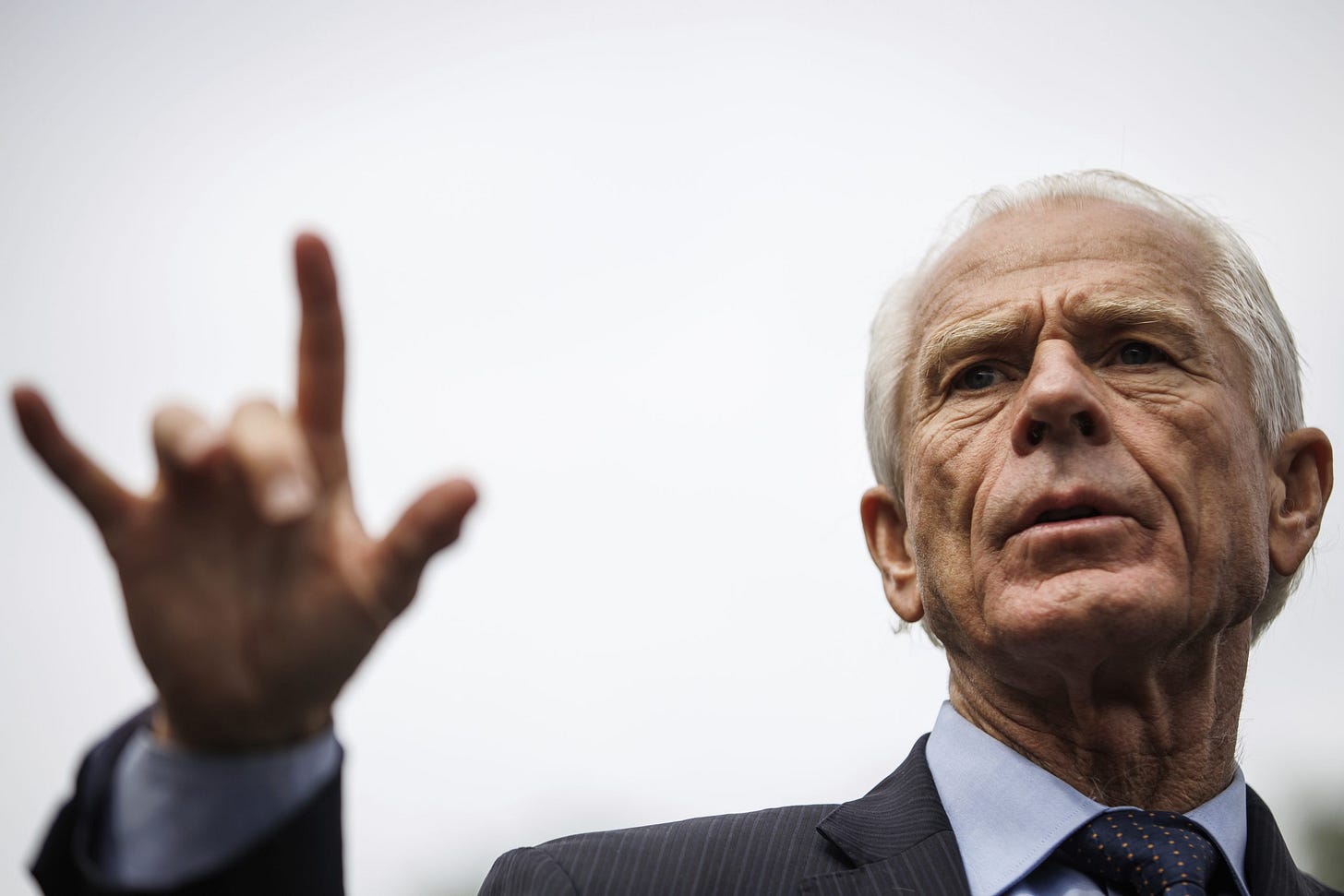Los Angeles: Trump's National Guard Mobilization May Backfire
So far, his reaction to protests against heavy-handed immigration arrests has created chaos instead of quelling it. A Washington Monthly podcast discussion.
Los Angeles: Trump's National Guard Mobilization May Backfire
So far, his reaction to protests against heavy-handed immigration arrests has created chaos instead of quelling it. A Washington Monthly podcast discussion.
Anne Kim: We’re seeing a potentially dangerous escalation of Trump’s exercise of power. He’s deployed the National Guard to Los Angeles over the weekend, and there’s a military parade planned for DC this weekend as well. Just to catch everyone up: Trump deployed about 2,000 National Guard troops to LA in response to protests over immigration raids. Governor Gavin Newsom did not request the mobilization. In fact, he called it “purposely inflammatory” and filed a formal request to withdraw the troops.
The last time a president activated the National Guard without a governor’s request was in 1965, when Lyndon Johnson sent troops to Alabama to protect civil rights demonstrators. This time, we’re seeing the opposite—troops deployed to crack down on peaceful protesters. So guys, what worries you most about what the administration is doing and where it’s headed this week?
Matt Cooper: Everything. I mean, it’s unnecessary. There’s a reason governors typically request National Guard support—for things like natural disasters or the occasional riot. This is unprecedented. It feels like the administration is trying to escalate rather than deescalate.
Look, this isn’t to excuse anyone committing violence or vandalism during the anti-ICE protests. But as The New York Times said, they’re relishing this conflict. That’s dangerous. It could lead to more deployments and crackdowns on civil liberties.
Bill Scher: What I want to understand is the public reaction. It’s hard to get a clear read in real time. People are citing pre-existing polling on immigration, but that’s a tricky business—opinions swing dramatically depending on how you frame the question.
For example, deporting people with criminal records polls well. But once you get into deporting people who are just here working, support drops fast. The Garcia case, for instance, polled very differently than Trump’s team hoped.
This is a move toward authoritarianism, but whether it sticks depends on how much the public tolerates or welcomes it. If it doesn’t produce results—like improved order or a better immigration system—it may not be easily replicated in the future.
A.K.: If you were Gavin Newsom or LA Mayor Karen Bass, how would you respond right now?
B.S.: I think Newsom’s response so far is on point. And maybe this will memory-hole his earlier attempts to sidestep immigration—framing it as an 80/20 issue or trying to focus on the economy instead of Garcia.
You don’t get to opt out of this issue. The Trump administration is putting it front and center in the most horrific ways, and you have to deal with it.
Newsom is suing. He’s saying, “Don’t arrest the four-year-old—arrest me.” He’s being defiant, insisting on the rule of law and respect for the Constitution. That’s about all you can do.
M.C.: Right. And when Trump officials are threatening to arrest elected officials—like they did with a member of Congress in New Jersey—it’s politically treacherous for the administration. I think it helps Newsom and Bass.
Politically, it’s a sweet spot for Democrats: strong condemnations of vandalism, combined with pushback against federal overreach. That’s a good place to be.
A.K.: And don’t forget Trump’s threats to withhold federal funding from California. It’s an empty threat. California is a major donor state—it sends $83 billion more to the federal government than it gets back. Newsom even threatened not to send income taxes to the federal government. I’m not sure how he could do that, but it makes a point: the nation needs California more than the other way around.
M.C.: Of course.
B.S.: These threats don’t produce good policy outcomes. They just keep the culture war going. That might be enough to feed the MAGA base, which loves a fight for fight’s sake.
But most Americans want stability. They don’t want to live in a state of constant disruption. Even if some think, “Let Trump be tough and get things done,” if the result is more chaos, it won’t hold.
And Trump doesn’t care—he’s focused on the short term. But for the Republican Party long-term? I’m skeptical this is sustainable.
M.C.: Yeah, and the more they use the threat of cutting off funding, the less effective it becomes. It just leads to chaos—in the courts, in the streets, on campuses. These things get litigated forever. Diminishing returns, if you ask me.
A.K.: Right.
B.S.: One thing I want to add—this is also about a shift in Trump’s immigration strategy. They’re targeting workplaces now, not just “criminals.” Even an anti-immigration source in The New York Times noted: going after criminals takes more staffing, more resources.
But if you raid a workplace, you get big numbers fast. You get TV cameras. You can show off your “progress.” The downside? You’re hitting the economy—locally and nationally.
A.K.: Right. Agriculture, construction, hospitality—double-digit shares of workers in those industries are immigrants, many undocumented.
M.C.: Exactly. And if you want the kind of deportation numbers Trump and Tom Homan are talking about, you’d have to go after workers in red states too. That would cause real economic and political damage.
There was that Times story last week—about a small Missouri town where a beloved waitress, Carol, was detained during her regular ICE check-in. She’d lived there for decades, had kids. The town voted for Trump—but they were aghast. “We wanted criminals locked up, not Carol.” I think we’ll see more of that.
A.K.: Let me ask you both a journalism question. Coverage of LA has focused heavily on burning Waymo cars—great video, sure. But friends in LA say the coverage is totally misrepresenting what’s really happening. That kind of sensationalism plays into Trump’s hands.
So what’s your recommendation for journalists? How do we stay fair and alive to the facts without giving cover for authoritarian crackdowns?
Trump Tariffs Under Legal Fire: What You Need to Know
After most Trump Tariffs were shot down by a trade court last month, all eyes turn to the Supreme Court and its Major Questions Doctrine.
by James D. Zirin
Ten Years After Obergefell: Is Same-Sex Marriage Safe?
Threatened by conservative justices, the war on trans rights, and the Trump's hostility to civil rights, can marriage equality survive?
by Alison Gash
Find the Washington Monthly on Social
We're on BlueSky @washingtonmonthly.com
We're on Twitter @monthly
We're on YouTube @washingtonmonthly9554
We're on Threads @WAMonthly
We're on Instagram @WAMonthly
We're on Facebook @WashingtonMonthly






